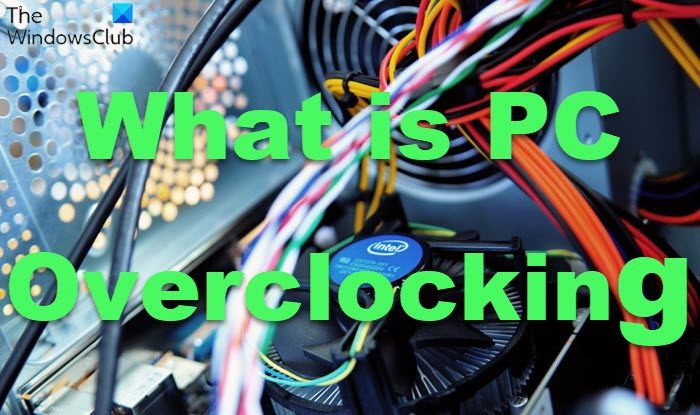Overclocking appears to be the “in” thing to do in the computer world nowadays, it seems. Computer fans are searching for better ways to overclock their PCs and expect to see phenomenal changes afterward with regard to speed. Before we find out if it’s possible, let’s see what overclocking is.

What is PC Overclocking
Overclocking is a technique, not recommended by the manufacturer, used to speed up your computer’s components (motherboard, CPU, memory, graphics card, and other internal hardware). It means that after this process your computer’s parts will supposedly run faster. For example, a 300MHz PII CPU might be overclocked up to 350 or even 400MHz. The interesting thing is that the P4 processors claim to be clock-locked, but you can speed it up too, by using the FSB (front side bus).
But is it worth overclocking your PC? Will it really meet your expectations? Hmm, don’t be too keen about it, until you have tried it or at least found out a little more about it.
Like it is in the fashion world, not everything which is “in” is practical and worth doing. This is the case with overclocking, you can do it, and then you can say you are well proud of yourself: “I overclocked my computer and it’s working like a rocket” – but will it be true? Most of the pro-overclocking lobby highly exaggerates the advantages of this process.
Let’s have a look a little further into this, shall we?
The manufacturer, by creating the CPU, checks all components in respect of what is critical for their chips. They check them at a maximum speed range. The competitive computer market makes developers release chips at the highest speed they can handle. It’s already the maximum for them to work properly but it seems the market always wants more. And then to increase the speed of a product, you add overclocking into the mix. What happens to your processor? It starts trying to work harder and stronger which leads to overheating and soon it’s wearing out. Compared to how much this unessential strain due to overclocking puts on the processor, it accomplishes only very little.
The problem is that you might not notice malfunctions straight away. It will keep building up and appear only later when you have already forgotten about the process of overclocking, which you did months ago. You will hardly realize that it was the speeding up, which caused the problems. Most people will blame the manufacturer and the age of their PC if it’s older than two years instead of turning back in time and remembering that you changed the system’s workflow.
It’s important to keep this overclocking in mind if your PC starts “acting weird” because fear not, there is a way to change it …to bring it back to normal. All you will need to do is to reverse the over-clock. Then you will notice that all of these newly appeared malfunctions will just disappear.
Read: GPU keeps crashing or freezing in Windows PC
It’s fair to mention though, that a small over-clock won’t do any harm and cause endless problems, but only if it is a small one! If it’s worth messing about for speeding up how your computer works which, you might not even notice (5-10%), you can go ahead! But remember that bad overclocking might cost you all of your digital belongings.
There are countless forums on the internet where extreme overclockers compete against each other for bragging rights, of who got which CPU up to what outrageous speed. There are no formal prizes or financial rewards in this pursuit; it’s just a form of extreme sport that breaks CPUs instead of bones. It’s also a very expensive sport as the chase of the ultimate speed leaves behind a trail of sizzled and unusable CPUs.
It’s not a sport that I would recommend to the faint-hearted or anyone with limited disposable income!
Check these posts too:
- Free overclocking software for Windows PC
- Intel Extreme Tuning Utility for Windows lets you overclock CPU, Memory & Bus speeds
- OverClock Checking Tool will benchmark your CPU and system components
- Linpack Xtreme is an aggressive benchmarking & stress testing software
- AMD Ryzen Master helps optimize your PC for Gaming.